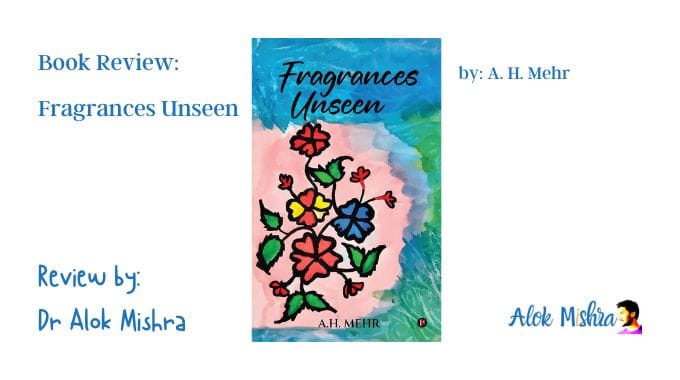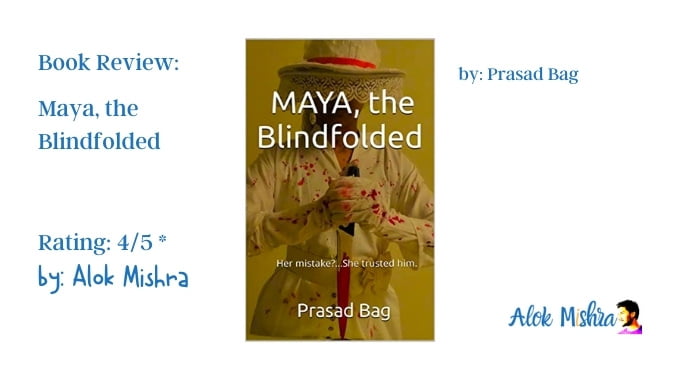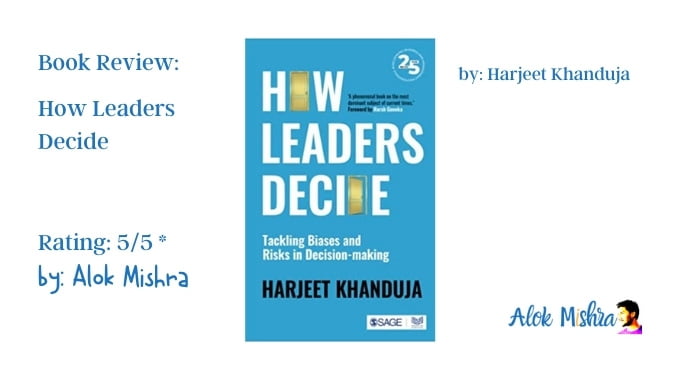Indian English poetry has been a very close subject to me. Right from the…
Fragrances Unseen by A H Mehr, book review of the collection
A. H. Mehr’s Fragrances Unseen is an exquisite collection of poetry and prose that evokes the ethereal connection between grief, memory, and identity. Written in the wake of her father’s passing, the collection becomes more than a literary artefact; it is a sacred space where memory breathes, loss speaks, and fragrance becomes a metaphor for the invisible continuities of love and spirit. Through her delicate yet precise use of imagery, Mehr transforms private sorrow into a universal meditation on resilience, remembrance, and selfhood. The book’s dedication itself, “To Abba: This book carries your knowledge and silence in grace and in grief… You, now my Sky”, sets the tone for what follows: a work that is intimate yet transcendent, deeply personal yet widely resonant.
Mehr’s poetic voice is remarkably assured, blending lyrical sensitivity with a fine philosophical depth. Her verse draws on the sensory richness of the world, like earth, fragrance, brass, coconuts, and lilacs, to anchor abstract emotions in tangible details. In the opening poem, the speaker’s declaration, “I am from antique brass vessels, from pristine sugar candies and brown coconut husks,” immediately roots identity in material culture and familial memory. The poem becomes a celebration of origins, where even the humblest domestic artefacts—brass utensils, sugar candies, clay stoves—are not inert objects but custodians of memory. These items carry the scent of a lived past, embodying the continuity between generations, and symbolising the sustenance of tradition within change.

The poet’s invocation of the banana orchards and Indian lilac is not mere nostalgia but a remembrance of nurturing spaces that shaped her. The lilac’s “glossy green leaves with jagged edges” guard her with their “bittersweet balms”, an image that beautifully conveys the dual nature of familial love—protective yet instructive, tender yet severe. The verse encapsulates the Indian ethos of rootedness in familial and cultural soil, while also acknowledging the inevitable transformations that come with time and migration. Mehr’s identity, as the poem suggests, is not monolithic but layered; it is shaped by faith, ancestry, geography, and spiritual heritage. The mention of “The Subtle One/ The Provider, with Oceans of Spirituality and The Throne Verse” interweaves personal memory with the sacred, elevating familial remembrance to a form of spiritual continuity.
Throughout Fragrances Unseen, Mehr exhibits a gift for creating emotional density through restraint. Her style is not ostentatious; rather, it is meditative and poised, reflecting an interiorised spirituality. The tone, at times, is reminiscent of the elegiac calm found in the works of Rainer Maria Rilke and Rabindranath Tagore, poets who also translated loss into luminous reflection. Mehr, like them, does not lament so much as she transforms. Her grief is not a wound but a wellspring from which beauty flows. The dedication to her parents exemplifies this transformation: “Though you are no longer here, you live on in every breath I take, every word I write. This is one of my other ways of keeping you close, of honouring the love that will never fade.”
This sentiment of continuity amid absence underpins the entire collection. The unseen fragrances of the title evoke the persistence of presence through intangibles like scent, memory, love, and faith that defy the logic of physical death. Even when the body disappears, its essence remains perceptible through sensory and spiritual traces. The act of writing thus becomes Mehr’s means of communion with those who have departed. In this, the poet extends the concept of remembrance from mere recollection to an active engagement with the sacred residues of life.
The poem about The Pandemic introduces a stark shift in tone and theme, yet remains consistent with Mehr’s broader preoccupations with mortality and human fragility. Written amidst the collective trauma of the COVID-19 pandemic, it captures the surreal disquiet of a world gripped by fear and isolation. The repetition of the phrase “they hide” at the end of each stanza creates a haunting rhythm of concealment and loss. The poem speaks not only to the literal masking and isolation but also to the metaphoric hiding of pain, grief, and despair. Lines such as “Man pleading for togetherness – fearing loneliness and its threat: they hide” lay bare the psychic cost of separation and the yearning for connection in a time of death and uncertainty. The poet’s address to herself, “Oh, Mehr! What’ve they all been turned into?”, transforms the piece from an observation of global catastrophe into a personal cry of disbelief and sorrow. The poem thus bridges the collective and the individual, illustrating how shared suffering can resonate within one’s private grief.
In contrast, the introspective poem “You? Your Identity? Who Are You?” turns inward to explore existential questions of selfhood and authenticity. Here Mehr’s voice takes on a reflective cadence as she interrogates her inner landscape: “You. Yourself. Your identity. You an ocean or an oasis? Who are you?” The repetition of the question underscores the fluidity and complexity of identity. The speaker refuses to be confined by appearances—“A façade of serenity – a wreck inside”—and instead seeks to uncover the layered truths beneath the surface. The poem is both an inquiry and an affirmation: an acknowledgement of vulnerability and an assertion of dignity. When she writes, “Like a towering stoic Menhir: But dented by doubts and taunts of cynics. Still, you choose silence? You shine.”—Mehr situates herself within a lineage of silent endurance, recalling the poise of stoic thinkers and mystics who found strength in introspection.
Nature, in Mehr’s poetic universe, is both a mirror and a mentor. The prose-poem “The Poet’s Jasmine Inspires Me” encapsulates this philosophy with remarkable tenderness. The poet describes her lifelong fascination with jasmine blossoms, symbols of purity, fragility, and resilience. Their ephemeral beauty becomes a metaphor for the human condition: “I know they must wither in a day or two, even if I sprinkle fresh water on them… Hence, I’ve decided I’ll appreciate the prettiest part.” This acceptance of transience reflects a profound spiritual maturity. Mehr’s insight, that appreciation rather than resistance is the key to peace, resonates with Eastern philosophical traditions, particularly the Sufi and Vedantic emphasis on detachment and acceptance. Her concluding reflection, that “Their existence, aura, and dignity (till they are) enlighten and inspire me to take persistent chances, despite the fragility and evanescence of it all,” articulates a philosophy of gratitude that transcends grief.
The imagery in this piece is both sensuous and symbolic. The “plain pointed leaves and bare stems” that “sob for the stolen petals of their fragrant companions” evoke a poignant sense of loss, yet also suggest the continuity of life. Even in its absence, beauty lingers as a memory and a scent. This duality between the visible and the unseen, the transient and the eternal, defines Mehr’s poetic temperament.
In another prose reflection, Mehr writes, “Loud rains this cold August evening quieten all commotion… and mayhem of my mind.” The rhythm here slows into meditative calm, as if the natural world were soothing the poet’s inner turbulence. She observes with painterly precision: “Raw cedar and rich burnt umber wrap around trees… display a medley of emotions and embedded hope and bliss… and hope!” The repetition of “hope” signals not mere optimism but spiritual endurance. Even when she describes herself as “a crushed stone,” she immediately asserts, “However, absolutely not, will I fade any time soon.” This refusal to succumb to despair captures Mehr’s underlying conviction that survival itself is a form of grace. The poet becomes “a particle of shifting sands in the shifting sands of survival,” accepting impermanence yet refusing erasure.
The titular piece, “Fragrances Unseen,” functions as a summative metaphor for the entire collection. Mehr’s belief that “multiflora blooms of scarlets and pinks… are for happy moments” expands into a meditation on the role of beauty in both joy and mourning. She acknowledges that the same flowers and their fragrances, once emblems of celebration, are also placed “on sealed spaces of those who don’t return.” This transformation of meaning, from joy to elegy, encapsulates the cyclical nature of existence. The concluding lines—“dark tender sunset weaves in early May raindrops enough to stir pain scarce to wash out salty eyes rose bracts on dry mud”—exemplify her mastery of delicate imagery. Pain and beauty intermingle seamlessly; the poem refuses to separate sorrow from splendour.
Mehr’s language throughout the collection is musical yet measured, rich in texture but never ornate. Her diction evokes the cadence of spoken remembrance—intimate, rhythmic, and imbued with the quiet dignity of reflection. The imagery is tactile, aromatic, and luminous, allowing the reader to feel, smell, and almost inhabit the landscapes she describes. The recurring motifs of scent, light, and nature form an intricate web of symbolism through which the poet explores the themes of memory and mortality.
Fragrances Unseen ultimately reflects as a tribute not only to the poet’s parents but also to the enduring power of love and art to transcend death. Mehr’s poetry reminds us that grief, when articulated through language, becomes a form of continuity rather than closure. The unseen fragrances, those intangible traces of affection and faith, linger as gentle affirmations of life’s unseen connections. In transforming her private mourning into lyrical beauty, A. H. Mehr joins the company of poets who find light within loss and melody within silence. Her work invites the reader to pause, breathe, and rediscover the quiet sanctity of remembrance.
You can get a copy from Amazon India here – get a copy now.
Dr Alok Mishra
November 5, 2025




This Post Has 0 Comments